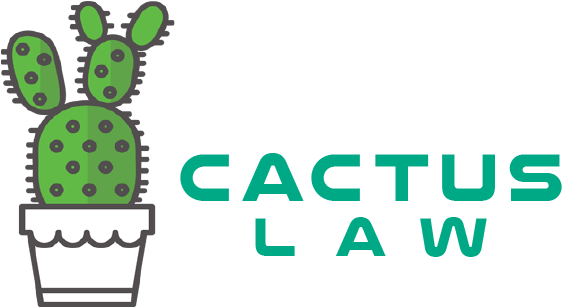The New Residential Rental Property Rebate
You are entitled for the new residential rental property rebate (NRRPR) if you bought a newly const ructed home or condo as an investment property and have a tenant who has signed a lease for at least one year. Notably, when you purchase a new residential property to rent out, the condo or home developer is not allowed to apply for the new home HST rebate on your behalf, as they would if it were your primary residence. As a result, buyers are forced to pay the HST for the rental property up front and then must wait for the Canada Revenue Agency (CRA) to issue a refund. This often places a temporary financial burden on the individual purchasing the investment property because they will be out a considerable amount of money for up to a year and will have to endure any interest costs in the interim. It is strongly advised that you file your HST rental refund application as soon as you close on the property and find a tenant to reduce the amount of money you spend servicing this additional debt.
ructed home or condo as an investment property and have a tenant who has signed a lease for at least one year. Notably, when you purchase a new residential property to rent out, the condo or home developer is not allowed to apply for the new home HST rebate on your behalf, as they would if it were your primary residence. As a result, buyers are forced to pay the HST for the rental property up front and then must wait for the Canada Revenue Agency (CRA) to issue a refund. This often places a temporary financial burden on the individual purchasing the investment property because they will be out a considerable amount of money for up to a year and will have to endure any interest costs in the interim. It is strongly advised that you file your HST rental refund application as soon as you close on the property and find a tenant to reduce the amount of money you spend servicing this additional debt.
HST Rebate for Primary Residences vs. Rental Properties
If you are purchasing a home to live in or for a close relative to live in, the seller will usually reduce the final selling price, including HST, by the sum of the new housing rebate in return for full access to your rebate when it is released by the CRA. Not only does this make it easier for the buyer to afford the property because the selling price is lower, but it also saves them the time and effort of applying for the new home refund themselves since the seller takes
care of it. This also enables condo and home builders in Ontario to advertise a lower “sticker price” for their new developments. When looking for new real estate, you will notice that many of the advertised prices already include the HST rebate for new homes. Notably, however, sellers are only allowed to do this for buyers who are purchasing a primary home. This means that all other buyers, including those buying a rental property, must pay the HST in full up front, resulting in a selling price that is higher than what is usually advertised.
Fortunately, in Ontario, there is a special HST rebate intended to ensure that investors do not pay more for a new home than they would if it were to be occupied by the owner. The NRRPR is a HST rebate for rental properties provided by the CRA, and it is available to any landlord who purchases a new home or condo of which the first occupant is a tenant. The main difference between the rental property rebate and the regular HST new house rebate is that the buyer must pay all of the HST upfront and can only apply for it themselves, rather than the seller “fronting” the reimbursement to reduce the purchase price and then handling the application for you. Since most property owners who are interested in applying for the NRRPR are not tax lawyers or accountants, it is often recommended that they hire a tax advisor rather than attempting to complete the complicated procedure on their own to ensure that the HST rental rebate application is completed on time and accurately.
Strategies for HST Rebate Rental Properties
To decide whether a property is a good investment, real estate investors usually look at its capitalization rate, or “cap rate.” Essentially, the cap rate of an investment property is determined by subtracting property expenses such as taxes, insurance, and maintenance from rental revenue, then dividing that figure by the total value of the home. Here, the goal is to achieve the most net operating income (total rent minus expenses) relative to the property’s total value, and cap rates are usually expressed as a percentage. It is important to remember that your purchase price will include HST if you buy a brand-new condo or house in Ontario to rent out. On paper, this lowers the cap rate of the investment condo or home, but a wise investor will always keep in mind the size of their new rental housing rebate when comparing the property to other non-new property investments that are not subject to HST.
Furthermore, it is also quite simple to use the HST rebate for rental properties to reduce the principal amount of a mortgage. Taking out a mortgage with a 20/20, 15/15, or 10/10 prepayment option is a popular strategy. This helps you to prepay up to 20% of the initial mortgage principal balance without incurring any extra fees or penalties at the end of the calendar year. Buyers who use the assistance of a tax advisor for the HST rebate program are generally able to collect their rebate money within two months, which usually ensures that they will not have to pay any extra interest before applying the entire rebate directly to their mortgage principal. Notably, the property’s cap rate will improve once the rental refund is applied to the mortgage, and the only downside compared to buying a non-new home is that you had to originally qualify for a larger mortgage.
Rental Property Flippers & the HST Rebate
It is important to note that if a buyer receives a new residential rental property rebate, the provincial HST rebate must be repaid if the property is sold within one year. This ensures that someone who purchases a brand-new investment property, then rents it out, but then sells it quickly, is not eligible for the NRRPR.
Investment Properties & Renovations
Under the rental housing self-supply rules, someone who builds or significantly renovates rental housing and makes a supply of the property by way of lease or license agreement is deemed to have collected and paid tax. When calculating the HST for the property, the fair market value (FMV) of both the building and the land must be determined. If the first occupant is a tenant, purchasers who rent out the property immediately after purchasing it are eligible for the NRRPR. However, you cannot get the NRRPR from the builder, and people who purchase a home or condo and then rent it out are responsible for the new rental property HST rebate themselves after they have closed on the house or condo. Anyone who does a significant renovation on a rental property will qualify for the NRRPR after the work is finished and the property is occupied by a tenant.
Please Contact Cactus Law to learn more about selling/purchasing real estate in Ontario.
Disclaimer: The purpose of this article is to serve as an informative piece and is not intended to provide legal advice.
About the Author:
Kanwar Gujral is entering his third year at Osgoode Hall Law School in Toronto, Ontario. He has a dedicated interest in real estate, business, and corporate law.

